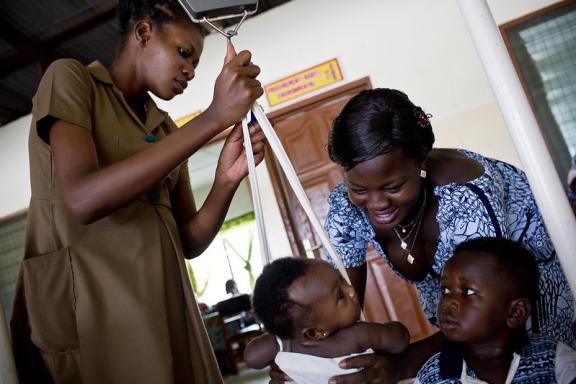
Growth monitoring and promotion (GMP) involves regularly measuring children, assessing growth adequacy, and linking children to tailored counseling and referral resources. It is designed to identify and prevent growth faltering before it becomes severe and potentially irreversible. Over 170 countries use GMP as a way to connect children and their caregivers to preventive care and essential child health, nutrition, and development services. However, the quality of GMP implementation continues to vary, and its enduring challenges provide ample opportunities for improvement.
In 2018, the Global Financing Facility of the World Bank Group, the United Nations Children’s Fund, the Bill & Melinda Gates Foundation, and The Manoff Group convened more than 60 global thought leaders, country implementers, and scientists to discuss critical challenges and questions around growth monitoring and promotion. It resulted in a recommendation to reposition GMP to better integrate child growth and development in the early years, specifically strengthening the promotion. The group also called out the need to tailor GMP services to different development, geographic, and cultural contexts.
To continue the conversation, USAID and USAID Advancing Nutrition, in collaboration with the Global Financing Facility of the World Bank Group, UNICEF, and the WHO, hosted a technical consultation to–
- hear from experts on technical advances in GMP and updates in innovations and implementation,
- share research or implementation learning with global stakeholders,
- and explore opportunities to address enduring challenges related to GMP to support healthy growth and development for all children.
GMP Expert Consultation: Updates, Knowledge Sharing, and Looking Ahead engaged over 70 experts through facilitated discussions, presentations, and small-group conversations. The event, held on April 20-21, 2022, provided participants with opportunities to engage in thought-provoking conversations that will continue to inform collaborative efforts to elevate GMP and address critical challenges for years to come.